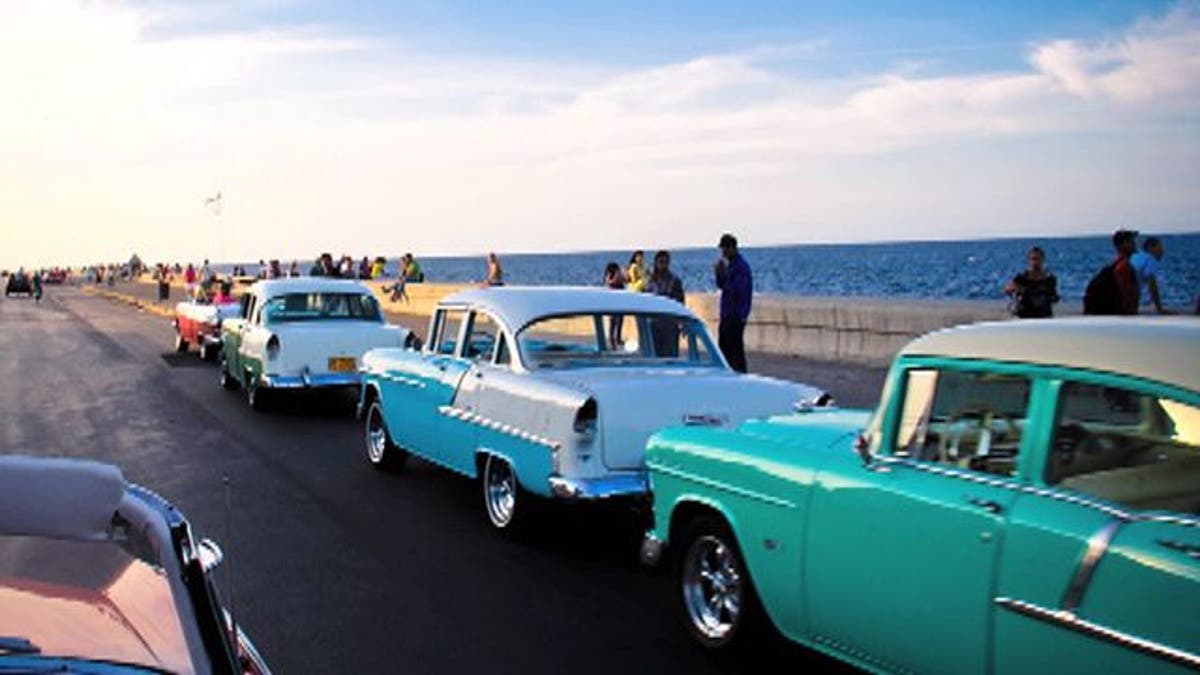
Last October, Cuban dictator Raúl Castro promised to lift restrictions on Cubans wanting to travel abroad. The new policy, set to go into effect on January 14th, will supposedly do away with the prohibitive exit fees and the required letter of invitation from a resident of the country being visited. This “simplified” process is part of Raúl Castro’s efforts to mollify an increasingly restless population that has largely been confined to the island nation since brother Fidel’s rise to power in 1959.
Few serious observers of the Castro regime expect that this new policy will in any way make freedom of travel a reality for the majority of the Cuban people. The Cuban dictatorship’s restrictions on foreign travel have always been at odds with the United Nations’ Universal Declaration of Human Rights, specifically Article 13: “Everyone has the right to leave any country, including his own, and to return to his country.” To think that Cuba’s apparatchiks will now cede control of its migration policies is a stretch for even the most die-hard Castro apologists.
Controls on travel and migration serve as a convenient “pressure valve” that the regime can open or close depending on the economic situation at home and/or the amount of unrest in the population.
Under the new policy, the regime will still control who gets issued a passport. The Cuban government has cautioned that travel will continue to be denied to those individuals who they feel might represent a “drain on the human capital created by the Revolution.” This last phrase typifies the Cuban communist view of its citizenry: individuals are devoid of any self-worth or accomplishment. Success is the product of the state’s paternal generosity. Therefore, the state can decide who gets to travel and who gets to stay home.
Those unfamiliar with Cuba’s recent history fail to realize just how manipulative and successful the Castro brothers have been at maintaining control over the population and cementing their long standing dictatorship. Tightly supervised migration and travel has been an integral part of the regime’s strategy to maintain itself in power. Historically, the Cuban government has encouraged the exodus of the elderly or those considered unproductive or counter-productive members of society. It is estimated that up to 25 percent of the 125,000 refugees who fled the island during the Mariel boatlift of 1980 were in fact criminals or mental patients released by the authoritarian state.
Controls on travel and migration serve as a convenient “pressure valve” that the regime can open or close depending on the economic situation at home and/or the amount of unrest in the population. The security apparatus of the state carefully controls who enters the island and for how long. Tourists and Cuban exiles bearing dollars for family members (and to pay the obligatory Cuban import duties and surtaxes) are welcomed with open arms. However, human rights advocates like Alan Gross, arrested in 2009, are quickly rounded up and thrown in jail.
Mr. Gross remains incarcerated, serving a 15-year sentence, despite the urgent pleas of diplomats, world leaders and even Pope Benedict XVI. He remains an unfortunate bargaining chip kept in the pocket of the Castro regime – until such time as they deem it convenient and useful to release him. They already tried – and failed – to pawn him for five convicted Cuban spies.
A similar policy applies to Cubans wanting to leave the island. Only those considered reliable communists, or expendable and apolitical burdens on the state, can easily travel or migrate abroad. Skilled doctors and athletes can only travel or work abroad under the watchful eye of accompanying state security agents – and with the explicit threat of familial retribution should they defect.
I speak with experience on the Castro brothers’ migration policy. Shortly after his ascendancy into power, Fidel Castro encouraged the departure of what he disparagingly called gusanos, the “worms” of Cuban society who wanted nothing to do with the new Communist regime. Thousands of successful middle class families, including doctors, lawyers, engineers and others, fled in droves in the early 60s. My family was among the fleeing gusanos.
The policy continued until the regime noticed that their hospitals, their power plants, the courts, and industrial enterprises everywhere were quickly being depleted of the talent needed to run them. They immediately halted the mass exodus.
My father, an experienced farm veterinarian, was considered too valuable to be allowed to emigrate. As a result, our family was torn apart and I spent most of my childhood without a father. We were not reunited until I reached high school.
The “new” Cuban travel policy promises more of the same. More suffering for the Cuban people kept isolated on an island prison. More entrenchment by the Castro regime and its cronies. More manipulation of a gullible worldwide media. More indifference by a U.S. government that shows little interest in the enslavement of 11 million people just 90 miles from its shores.
Nothing will change.
